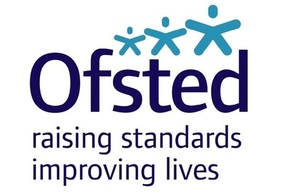Children on free school meals being failed in Northumberland
Inspections in Northumberland to find out why attainment for children who are eligible for free school meals (FSM) is below other areas.

Northumberland is an affluent authority where the proportion of children eligible for FSM is relatively low compared to the North East region and nationally.
However, in 2012, only 61% of children on FSM achieved Level 4 in English and maths at Key Stage 2, compared to 82% of their non-FSM peers in the authority. Nationally and within the North East region, 66% of children on FSM achieve this grade.
In the same period, children between Key Stage 1 and 2 in Northumberland made the least progress of all local authorities in the North East in English and maths.
The picture for children in secondary schools is worse – only 26% of pupils on FSM were able to achieve 5 or more A* to C GCSE grades including English and maths compared to 62% for other pupils in the county. In the North East region, 33% of children on FSM achieved this grade and 36% nationally.
While first and primary schools in the county are doing very well, with 92% of children going to a good or better school, there are worryingly a disproportionate number of under-performing secondary schools.
Ofsted’s latest data from 31 August 2013 shows that 37% of secondary schools - which include middle deemed secondary - were judged less than good at their last inspection, compared with 27% across England. This means over 8, 000 children in the county are going to a secondary school that is not yet good.
Seventeen focused school inspections will be taking place in the authority as a result of Ofsted’s findings that the proportion of children attending a good or better secondary phase school is currently well below the national average.
At the same time Ofsted will conduct an equal number of telephone surveys to other schools in Northumberland, which are not being inspected.
The exercise marks a concerted programme of action by Ofsted to establish why disadvantaged children are not being supported to achieve and why children in some parts of the country have a much lower chance of attending a good or better secondary phase school compared to areas with a similar demographic.
Nick Hudson, Regional Director for the North East and Yorkshire and Humber said:
While I recognise that primary schools in Northumberland are doing well, I am very concerned that children on free school meals in the county are not getting the education they deserve.
The proportion of children on free school meals in the county is relatively low and therefore it is even more of a worry that there is a significant attainment gap for these children compared to their peers within the authority, in the North East region and nationally. This is an unacceptable situation.
That is why today and over the next week, my inspectors will be visiting a number of schools in Northumberland to find out why the pupil premium is not being effectively used to help disadvantaged children, as well as examine the underperformance of secondary schools in the area.
We will be paying particular attention to the effectiveness and impact of the support these schools are receiving from the local authority.
Children only get one chance of an education. As Regional Director for the North East and Yorkshire and Humber, I want to tackle the variations highlighted in HMCI’s Unseen Children report and in our Annual Report, to drive improvement in all schools in this region.
These inspections, which were scheduled to take place this academic year but are being brought forward, will include all types of schools.
The inspections and telephone surveys will give a powerful snapshot of not only how well these particular schools are doing in Northumberland but also a strong indication of the quality of external support and direction given to the schools by the local authority.
The findings and any recommendations will be shared with the local authority as well as schools, parents and the wider public. If Ofsted finds that the local authority is proactive in addressing key issues and that standards in schools are improving, this will be made clear in the letter setting out the principal findings to the local authority.
However, if there is evidence that the local authority is not fulfilling its statutory duty to promote high standards and fair access to educational opportunity, Ofsted may consider carrying out an inspection of the authority’s school improvement function under the new framework.
The local authority school improvement framework, which took effect in June this year, enables Ofsted for the first time to inspect the school improvement functions of any local authority where there are concerns that the statutory duty to improve school standards is not being met. This may include areas where the performance of schools has declined since the data was collected for the last Annual Report.
Notes to editors
-
First schools: Age range 4 to 9 years of age; Middle schools 9 to 13 years of age; high schools 13 to 18 years of age.
-
The framework for the inspection of local authority arrangements for supporting school improvement.
Media enquiries
Clive House
70 Petty France
London
SW1H 9EX
Email pressenquiries@ofsted.gov.uk
Monday to Friday, 8:30am to 6pm 0300 013 0415
Out of hours duty press officer 07919 057 359